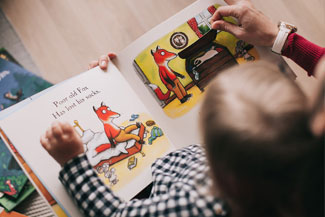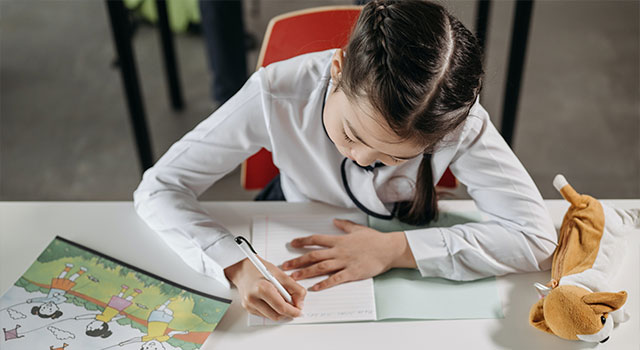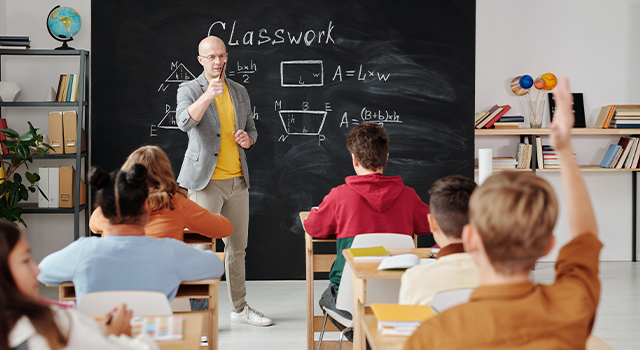
Does Your Child Have Dyslexia or a Vision Problem – Or Both?
Dyslexia is a condition that affects areas of the brain responsible for information processing, limiting one’s ability to decode letters, identify speech sounds and learn how sounds relate to letters and words. Because it adversely affects a person’s ability to read, spell, write and even speak, it inevitably leads to learning difficulties.
But dyslexia is just one reason a child or adult may have trouble learning. Quite often, undetected vision problems impede a person’s ability to read and perform other tasks. If vision is the culprit, vision therapy can often alleviate or even cure the problem.
If a child has any reading or learning difficulties it is important to receive a proper diagnosis to determine whether learning difficulties are caused by dyslexia or a vision problem — or perhaps both. Even if you’ve already received a dyslexia diagnosis, rule out any concurrent vision problems by setting up an appointment with Dr. Charles Shidlofsky for a comprehensive eye exam.
What Is Dyslexia?
1 in 10 people has dyslexia, which affects areas of the brain responsible for processing language. People with this condition tend to have trouble spelling and often mix up letters and sounds. They will reverse letters within words: seeing a b and thinking it’s a d, seeing a p and thinking it’s a q, or reading the word cat as tac.
Dyslexia is a learning disability. It does not affect intelligence. With the proper diagnosis and educational support, children and adults with dyslexia can thrive in every setting.
How Is Dyslexia Treated?
While there is currently no cure or medical treatment for dyslexia, it can be better managed with the help of a trained teacher, tutor, or reading specialist.
The teacher or tutor will offer special activities to help the person recognize speech sounds in words (called phonemic awareness) and letter-sound correspondences (called phonics).
Learning Disability and Vision Problems
 It’s often impossible for a teacher or parent to know whether a child has a vision problem or dyslexia because both conditions can manifest in similar ways. Like dyslexia, poor visual skills can hinder a children’s ability to succeed in school. This, in turn, lowers self-esteem and confidence levels.
It’s often impossible for a teacher or parent to know whether a child has a vision problem or dyslexia because both conditions can manifest in similar ways. Like dyslexia, poor visual skills can hinder a children’s ability to succeed in school. This, in turn, lowers self-esteem and confidence levels.
A Few of the Vision Problems That Affect Learning
- Problems with eye tracking – the eyes’ inability to follow a line of print
- Issues with eye teaming – the inability of both eyes to work together as a synchronized team
- Poor binocular vision – refers to the struggle to simultaneously blend the images from both eyes into a single image
- Accommodation problems – a decreased ability to maintain clear vision when focusing on a near object and when changing focus between distance and close vision.
- Problems with visual information processing – refers to poor visual memory, reduced visual form perception and difficulties with visualization skills
Any of these can cause a child to struggle to make sense of the information taken in through his or her eyes and visual system. This makes it difficult for even the brightest children to achieve to their potential at school, which, in turn, can result in lowered self confidence and secondary behavioral issues.
Schedule an appointment with Dr. Charles Shidlofsky to receive a comprehensive eye exam. If, after the eye evaluation, it is determined that your child’s visual skills can be improved, Dr. Charles Shidlofsky will create an individualized vision therapy program to develop and enhance these skills.
What is Vision Therapy?
Vision therapy is a fully customized program to meet the individual needs of every patient. The optometrist will devise a structured program following an extensive assessment of the visual skills.
This therapy is made up of a series of visual exercises that improve fundamental skills. It teaches the brain and eyes to work together as a team. Enhanced visual functioning leads to improved reading levels, writing skills and a child’s academic and sports performance.
As part of the therapeutic process, vision therapists utilize various tools, such as specialized lenses, prisms, patches, filters, balance boards and digital simulations. Each treatment session takes place once or twice a week in the office under the supervision of the eye doctor, who will also prescribe daily at-home exercises.
Can Dyslexia Be Treated With Vision Therapy?
Many people mistakenly believe that dyslexia is a vision problem; it is a brain processing problem that cannot be treated with vision therapy. However, undiagnosed visual problems are commonly misdiagnosed as dyslexia. Therefore, it’s important to get a comprehensive eye evaluation by an eye doctor to rule out any vision problems. As mentioned above, if a child with dyslexia also has a vision problem, vision therapy can effectively enhance any deficient vision skills.
Our practice serves patients from Plano, North Dallas, Fort Worth, and DFW Metroplex, Texas and surrounding communities.









